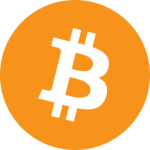Volcanic Explosion with BRICS BTC Mining Efforts
October 31, 2024
A stern warning to the USA and G7 nations at large has recently aired on U.S. television highlighting strategic Bitcoin moves being made by the BRICS and Friends nations.
Matthew Sigel, head of Digital Assets Research at VanEck, one of the world’s largest exchange-traded product issuers, warned viewers that while the U.S. and other G7 nations were “hyperventilating about the (U.S.) election” BRICS nations had a conference whereby 13 new partner countries were added to the BRICS+ list. That makes 22 confirmed participants within BRICS accounting for more of the world’s GDP than the G7!
Note: In January 2024, four new members were added, being Egypt, Ethiopia, Iran and the United Arab Emirates (UAE).
Sigel noted (if not outright warned) viewers that significant moves and trends were being made by members of these BRICS alliance states regarding the mining and securing of Bitcoin. This shift, where sovereign nations are beginning to use Bitcoin as a strategic asset, further emphasises a move away from a unipolar world where U.S. dollar dominance is being slowly but methodically eroded.
In August 2024, Russia announced it would legalise the mining of Bitcoin, whilst maintaining government oversight as to where it could occur due to energy constraints and concerns. In addition, Russia’s largest data centre operator BitRiver has partnered with the Russian Direct Investment Fund to build mining and AI computing facilities across BRICS nations.
Two of the new member BRICS countries’ have recently started Bitcoin mining initiatives. The UAE has established a partnership between Marathon Digital and Zero Two, with Ethiopia collaborating with Hong Kong’s West Data Group on a $250 million data project.
VanEck’s Sigel incorrectly stated Argentina as being a BRICS member. A recent article on the matter stated that Argentina had refused the invitation to officially become a member, wishing to stay apolitical on trade and alliances; like being Switzerland of the South Americas. Sigel was correct though, in stating that Argentina was mining Bitcoin.
Argentinian State-owned energy firm YPF’s subsidiary, YPF Luz, recently partnered with Genesis Digital Assets (GDA) and began mining Bitcoin with stranded gas. Argentina has already settled the oil trade with China in Chinese Yuan and not the traditional U.S. dollar. One of many massive moves away from U.S. dollar settlement. It’s not inconceivable that in the future, Argentina, like other sovereign nations, will start to use Bitcoin as a means of trade settlement.
And while we are on the subject, let’s not forget other sovereign states such as Bhutan and El Salvador have been mining and accumulating Bitcoin from mining operations linked to hydropower and volcanic heat emissions.
Bhutan is setting a global example with a Bitcoin reserve equivalent to about 30% of its GDP. This means that each Bhutanese citizen indirectly holds nearly 0.02 Bitcoin – worth, at current prices, about eight times the nation’s average monthly income. The entire Bitcoin mining process relies on 100% clean, renewable hydroelectric power.
Fresh off the press, a Bhutan government-linked BTC wallet has moved 929 BTC to Binance, possibly to take advantage of Bitcoin’s recent move towards an all-time high price. This is a perfect example of how governments and citizenry could benefit from owning Bitcoin as a hedge against inflationary pressures.
Mining Bitcoin enables these nations to accumulate the asset without needing to rely on market purchasing, allowing for a domestic supply of Bitcoin for treasury purposes or for settling trade agreements outside the U.S. dollar system.
For BRICS+ nations, Bitcoin offers unique value in a multipolar financial landscape. Bitcoin’s limited supply of 21 million coins, 4% of which are already estimated to be lost, can serve as an inflation-resistant reserve, potentially preserving wealth against fiat currency devaluation.
The supply-demand dynamics of Bitcoin could intensify as more sovereign wealth funds, corporations, and institutions increase their holdings. This is happening on multiple levels. Corporates such as MicroStrategy, Nexon, and Metaplanet are already holding BTC on their balance sheets, mirroring the trend. Additionally, with the rise of Bitcoin ETFs, more investors and organisations have streamlined access to BTC, amplifying the demand.
So what are the takeaways?
The move of sovereign states towards mining and accumulating Bitcoin is undeniable. Smart countries and governments are using their natural resources to produce electricity to secure Bitcoin through cooperative efforts with private sector experts. This strategically places forward-looking countries in a position of trade strength.
By tapping into sovereign energy supply, they can store this “energy value” in the form of Bitcoin, which can be deployed at a moment of their choosing to another country or business as a means of payment/trade outside the U.S.-centric unipolar USD petrodollar system.
It would appear as though the BRICS+ nations are keenly aware of this. And that list is growing!
“Over 30 countries have either formally applied or expressed interest in joining BRICS. These include Southeast Asian states Thailand, Malaysia and Vietnam; NATO member Turkey; major oil and gas producers like Algeria; the world’s biggest Muslim country, Indonesia; Nigeria, which has the largest population in Africa; and the world’s eighth most populous country, Bangladesh.”
Would it be too much of a stretch of the imagination to think the Russian Direct Investment Fund (RDIF) would help these countries tap into their natural resources with infrastructure development to secure Bitcoin to be able to then participate in trade settlement outside the U.S. / G7 system? A system that has been weaponised with sectioning, the cutting off from the Swift Payment System and confiscation of assets/funds held within the U.S?
If you consider that over 19 million Bitcoins have been mined already from the 21 million capped supply, the race is on to own a piece of sovereignty, a value outside the decaying fiat currency system. Sovereign Countries get it. BRICS+ get it. Multinational and large companies get it.
Share this Article:
Crypto in your SMSF
Top Movers
Get Started Trading Crypto with Ainslie.
Join Thousands of satisfied customers who trust Ainslie for their cryptocurrency and bullion needs.





